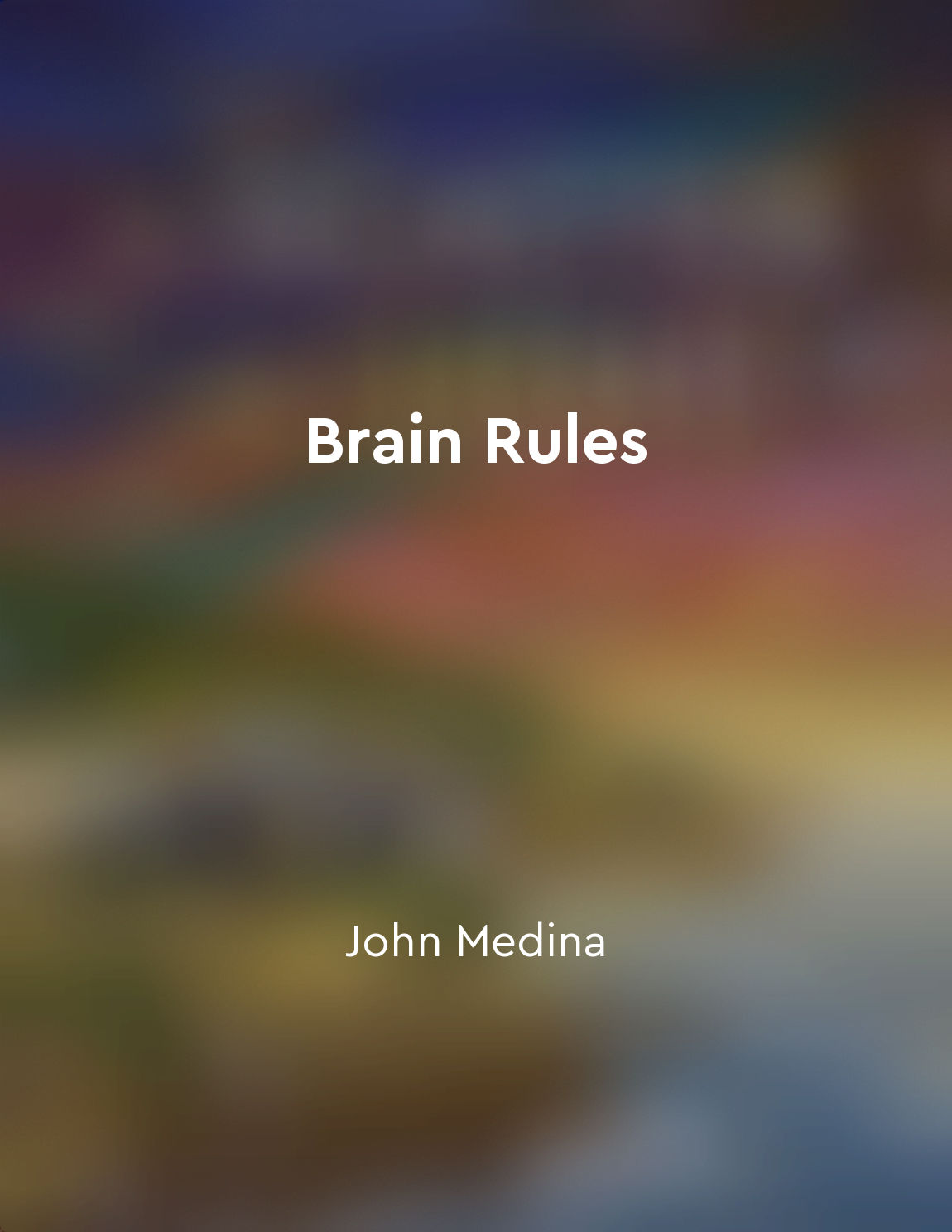The brain integrates sensory information to create perception from "summary" of The Biological Mind by Alan Jasanoff
The brain is a complex organ that serves as the command center of the body, responsible for processing sensory information from the external world and creating our perception of reality. This process involves integrating input from our various senses, such as sight, hearing, touch, taste, and smell, into a coherent and meaningful representation of the environment around us. Sensory information is initially received by specialized cells in our sensory organs, such as the eyes, ears, skin, taste buds, and nose. These cells convert external stimuli, such as light waves, sound waves, pressure, chemicals, and odors, into electrical signals that can be transmitted to the brain. Once these signals reach the brain, they are processed by different regions that are dedicated to specific sensory modalities, such as the visual cortex for processing visual information or the auditory cortex for processing auditory information. However, individual sensory inputs are not processed in isolation; rather, they are integrated by the brain to create a unified perception of the world. This integration process involves combining information from multiple senses to form a holistic understanding of our surroundings. For example, when we see a red apple, our brain not only processes the visual input of the apple's color and shape but also integrates this information with our sense of touch and taste to create a complete perception of the apple as a tangible object that is sweet and juicy. Furthermore, the brain also relies on past experiences, expectations, and emotions to shape our perception of sensory information. These higher-order cognitive processes can influence how we interpret and make sense of the world around us. For instance, if we have a fear of spiders, we may perceive a harmless spider crawling on our arm as a threat, even though it may not pose any real danger.- The brain's ability to integrate sensory information from multiple sources is crucial for creating our perception of reality. By combining input from our senses and incorporating past experiences and emotions, the brain constructs a coherent and meaningful representation of the external world. This process highlights the intricate and dynamic nature of perception, showcasing the brain's remarkable capacity to make sense of the complex and ever-changing environment we inhabit.
Similar Posts

Explore different calming techniques
When you're feeling overwhelmed or stressed out, it's important to have a variety of calming techniques in your toolbox. One te...
Generalizations are based on specific instances
When we make generalizations about the world around us, we are essentially drawing conclusions based on the specific instances ...
Time's directionality based on entropy increase
According to the laws of thermodynamics, entropy tends to increase over time. This means that the universe as a whole is moving...
Visual memory can be strong despite impairment
In describing visual agnosias, I have often pointed out that the ability to recognize familiar faces, or objects, or scenes may...

Embrace uncertainty as an opportunity for growth
Uncertainty is a fundamental aspect of life. It is a feeling that can be uncomfortable and sometimes even frightening. However,...
Custom and habit shape behavior
Human behavior is greatly influenced by custom and habit. These two factors hold immense power over our actions, shaping them i...

Sleep well, think well
Getting a good night's sleep can significantly impact your cognitive abilities. When you sleep well, your brain functions at it...
Name and tame strong emotions with your child
When your child is feeling overwhelmed by strong emotions, it's important to help them make sense of what they're experiencing....
Emotional selfcare is essential for overall well-being
In order to maintain a healthy and balanced state of being, it is imperative to pay attention to one's emotional well-being. Em...
Neurons are the basic building blocks of the brain
Neurons serve as the fundamental units of the brain, intricately designed to transmit information throughout the nervous system...


